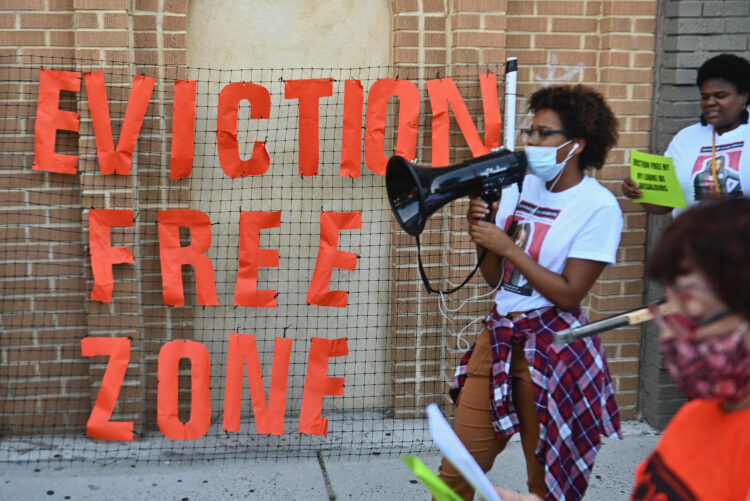According to a News One report, eviction or foreclosure threatens 1 in 2 Black families when the moratorium ends later this month.
A new study found that 1 in 3 Black families are behind on rent or mortgage payments in February. The U.S. Census Pulse Study acquired data from families on February 3-15 about their housing, rental and mortgage history during the pandemic. They found that 30% of Black families were behind on these payments, 40% were unsure whether they would be able to make their upcoming payment. Also, 50% were likely to face eviction or foreclosure.
The Princeton Eviction Lab found in a similar study that eviction rates and filings were higher for Black renters than white renters. They also found that property owners were more apt to threaten Black and Latinx women with eviction than they were with their white counterparts.
Having an eviction or even just the filing on one’s record creates a new challenge for renters who may need to move or would like to in the future. This happens even if one chooses to leave voluntarily before an eviction can take place.
Peter Hepburn, Research Fellow at the Princeton Eviction Lab, told NPR, “Once you’ve been filed against for eviction, not even evicted necessarily but just having that filing on your record, it’s going to make finding your next apartment that much more difficult.”
He added, “Black individuals make up about 21% of all renters, but they make up 35% of all defendants on eviction cases.”
The majority of Black cities like Newark are helping their residents by extending the moratorium past the federal expiration date. Others, like Washington, DC, have faced challenges in court to extended eviction moratoriums.
The pandemic will continue to make meeting the expenses of housing for many Black families a challenge, and housing stability will continue to be in peril unless, as The Princeton Eviction Lab Study states, public policy is shaped around this issue.
The CDC sent forth a proposal for a moratorium extension to the Office of Management and Budget for review, citing the ongoing pandemic as a necessary cause for continuing to keep as many Americans housed as possible.















